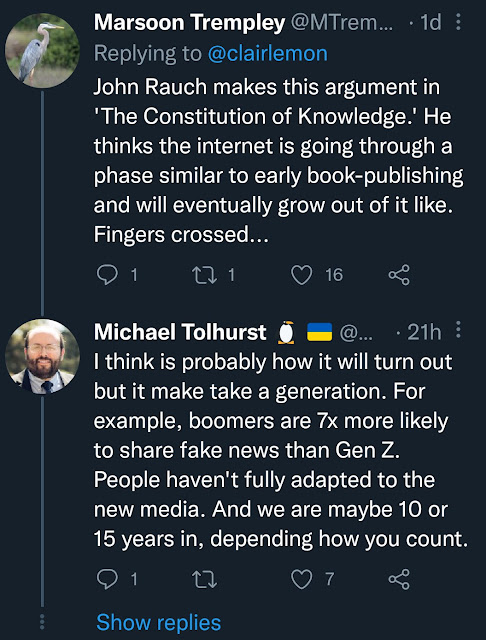Oddly, I haven't noticed any Twitter meltdown over a trans cautionary opinion piece in Washington Post - but the article has attracted 2,669 comments so far. Maybe the twitter reaction is there and I just haven't noticed it.
There was a Twitter trans meltdown over what I thought was a carefully argued opinion piece in The Age last week by Julie Szego. It was, according to most people tweeting about it, another "anti-trans" piece.
Anyway, the Washington Post article in particular, about a guy who now thinks he probably transitioned prematurely at age 19, and was under the influence of trans people who "affirmed" his decision in on line chat rooms, made me wonder whether it would be worthwhile getting the new world of psychedelic psychotherapy involved for people with gender dysphoria.
I mean, the apparent benefit of psychedelic psychotherapies is supposed to be along the lines of allowing the mind to re-set itself - to see things from a new perspective from that ingrained by past experience and ways of thinking. Sounds to me like something which may cause re-assessment of anxiety over the nature of the body one finds oneself living in.
In fact, someone wrote an article about the potential use of this in 2019, which I have read before (and maybe I have already referred to it in a post, but I can't find it right now.) The author only talks about it in a "gender affirming" context - in other words, it's in no way suggesting that it would done in a context of dissuading someone from transitioning. But the second paragraph here does seem a tad ambiguous:
Psychedelic therapy can reduce identity threat and decrease its negative
impact by allowing the client to heal and release internalized
transphobia. MDMA is thought to support clients in working through
traumatic content by increasing one’s ability to process using the
prefrontal cortex, the part of the brain that produces higher level
reasoning. Simultaneously, MDMA suppresses activity in the amygdala,
the fear center of the brain, which is overly activated in people
suffering from PTSD. Psychologically, the Model of Gender
Affirmation is a framework for conceptualizing transgender people’s
experiences of this healing process and its psychological and
behavioral consequences (Sevelius, 2013). According to the theory, we
can improve health outcomes for transgender people by increasing
access to gender affirmation and/or reducing the need for gender
affirmation from others, thereby decreasing identity threat.
Psychedelic therapy has the potential to do both.
With psychedelic therapy, we can increase access to gender affirmation
in multiple ways. Ideally, the client experiences connection and
affirmation from the therapists. The client may experience
affirmation of themselves, as MDMA is known to increase one’s
self-compassion and unconditional self-love. Psychedelic therapy
that results in a mystical or unity experience can result in a sense
of “divine blessing”, described as the experience of having God or
one’s higher power communicate affirmation of the highest order
(Eichenbaum, 2018). Overall, MDMA-assisted therapy can increase
one’s sense of trust and connection, and for trans and gender
diverse people who describe experiences of feeling like an outsider,
these medicines may provide a pathway for reconnecting with oneself
and others. In addition to increasing access to gender affirmation,
psychedelic therapy may also reduce the need for gender affirmation
from others. As a client experiences renewed connection with their
body and self-compassion, they often come away with a visceral
understanding that true affirmation must first come from within.
Why shouldn't some psychedelic form of "gender affirmation" end up working in favour of affirming the original gender? At least sometimes.
So yeah, seems to me that making this form of psychotherapy available to those who think all their problems are due to gender issues might be useful - before they make the transition.
Update: Reading some more articles on pro-psychedelic sites, such as this one, it would seem that the general expectation is that tripping will usual affirm their "true", other gender identity, rather than making them realise that their body is not the "wrong" one. And maybe that's right - I mean, it's a given that people who think they are transgender already think their real identity is buried inside them, so giving them a therapy that is (supposedly) going to given them better insight into their inner mind might just be a more usually a case of confirming what they are already primed to believe.
I guess you would have to conduct the research to see if that's the case, or not.
%20_%20Twitter.png)

















